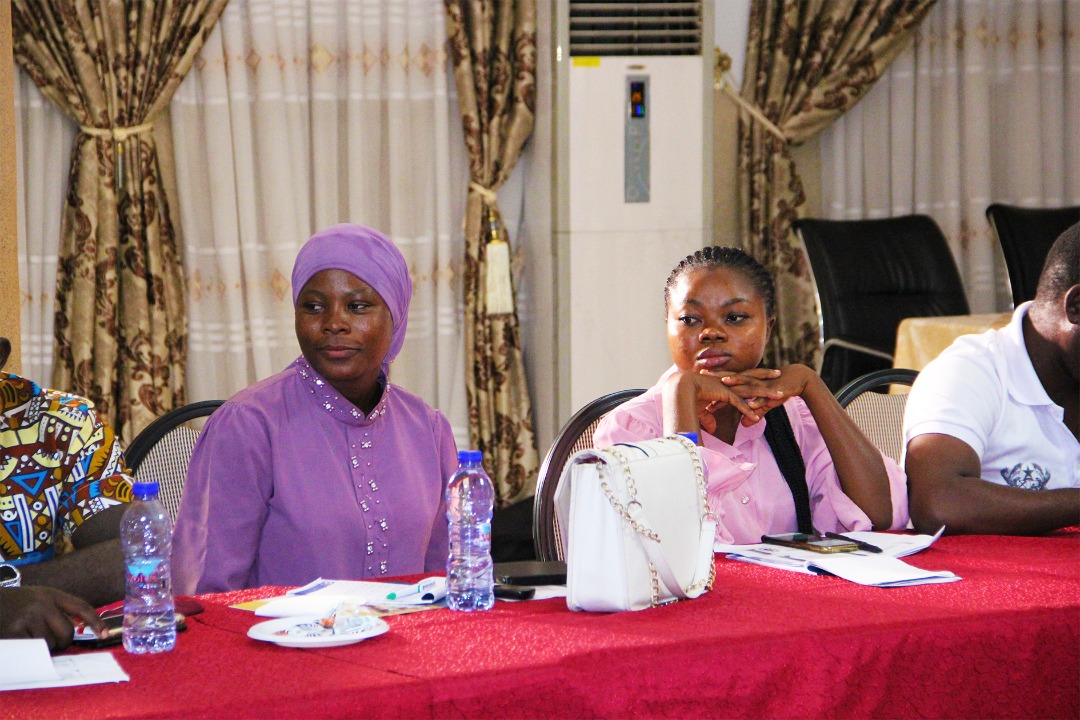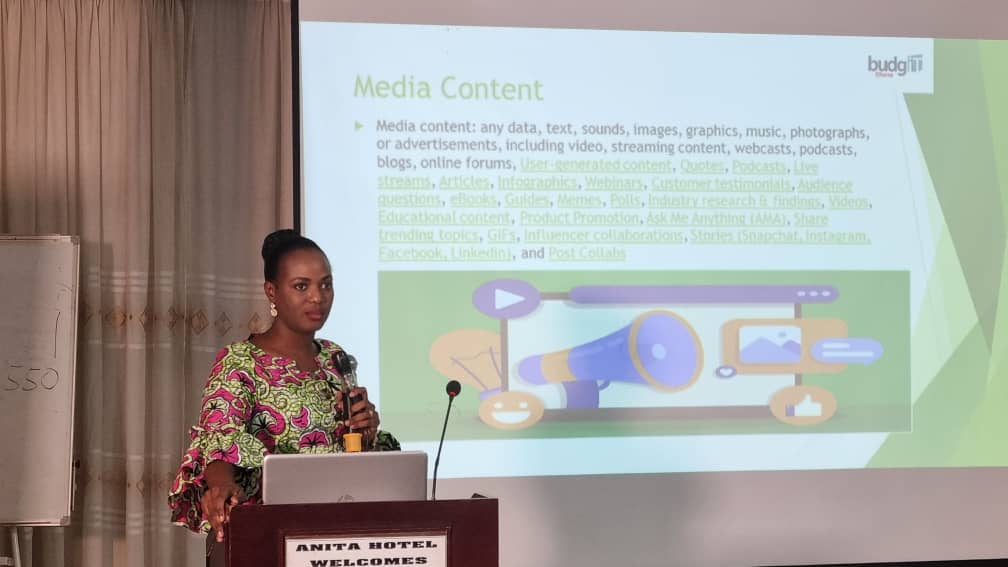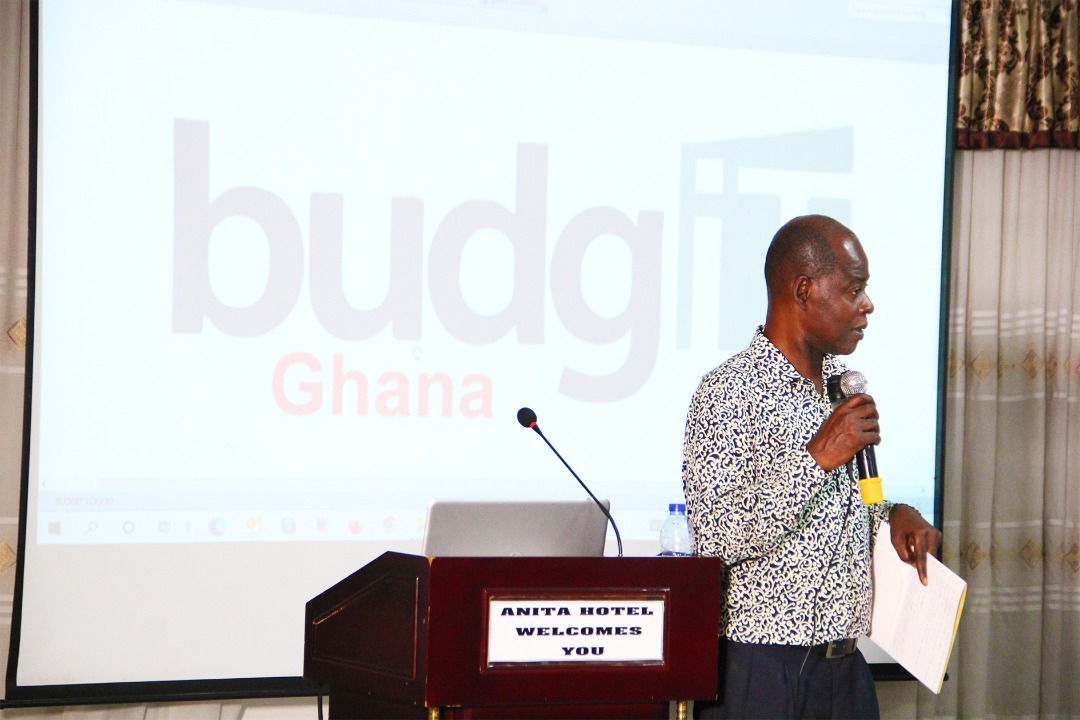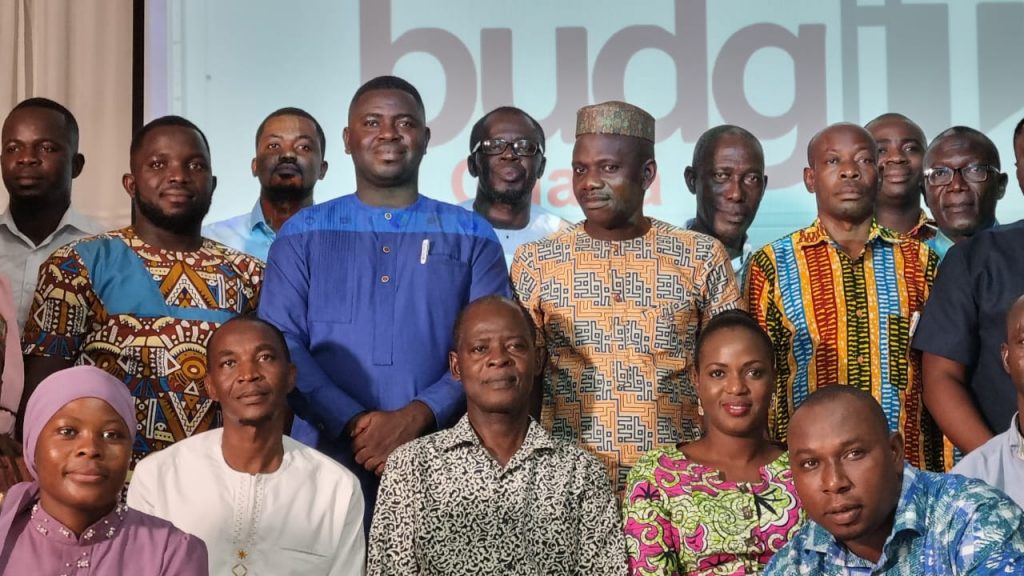BudgIT Ghana, in collaboration with the Ghana Anti-Corruption Coalition (GACC) has held a training session on the theme “THE POWER OF SOCIAL MEDIA AND ACTIVE CITIZENS IN BUILDING OPEN GOVERNMENT IN GHANA,” for members of the Local Accountability Network (LANet). The event was part of its Open Government Week (OGW), a global initiative designed to promote direct collaboration between the government and citizens to enhance public knowledge of government policies and programmes.
Head of Programmes at the GACC, Mr. Bright Kwadwo Sowu, emphasized that the training was particularly aimed at providing members of LANet with fact-checking skills and a proper insight into the workings of social media for the promotion of good governance, transparency and accountability. He stressed the need to produce relevant information that will hold duty-bearers more accountable within their various districts.

The Lead Researcher at BudgIT Ghana, Mr. Khiddir Iddris, highlighted the key objectives of BudgIT Ghana as a CSO and the importance of the Open Governance Week to the organization.
Communication Officer at BudgIT Ghana, Selikem Acolatse-Apaloo highlighted the power of social media and the importance of fact-checking in connection with the work of LANet members which involves tracking the performance of government on its intended policies and programmes. She elaborated on the global effect of social media and its influence in connecting organizations and individuals worldwide.
“Social media platforms have become a key source of news updates for all of us. We’re always on our phones, and when there’s any news, you’re most likely to see it on your phone first. You can be here and know what is happening in Singapore or Antarctica.”
She went on to give some statistics about the rate of internet usage of social media platforms in Ghana like Whatsapp, Twitter, Facebook and Instagram, stating that by the third quarter of the year 2021, we had about 89.9% of internet users in Ghana using Whatsapp, 74% of internet users using Facebook and nearly 62% of the total internet usage in the country using Instagram.

Dr. Steve Manteaw, the highly esteemed Lead Policy Analyst and Communication Strategist at the Integrated Social Development Center (ISODEC), began his presentation with an important question: “To what effect do we pursue transparency and accountability?”
Dr. Manteaw elaborated on how digital networking platforms and the multiple sources of information we are exposed to has become an effective tool for scrutinizing government activities.
“In past times, citizens were not as active and vibrant as we are today because we had a challenge of information asymmetry. The duty bearers had information whereas the citizens didn’t. So when we sat around the table, we weren’t able to ask the relevant questions that will achieve accountability.”
He made a case-in-point referencing the recent backlash by Ghanaian citizens against the proposed increase in utility tariffs by the Public Utilities Regulatory Commission (PURC), stating that the information was already out there even before the PURC made its announcement. He said the citizens expressing their concerns before the implementation of the tariffs is a testament of the importance of social media.
“Transparency comes before accountability. It gives us the information and tools we need to engage in order to achieve accountability.”

Dr. Manteaw also gave an overview of the OGP (Open Government Partnership), its structure and how it was launched in Washington in 2011.
The Open Governance Training Program was attended by about 38 LANet members from the 16 regions of Ghana, as well as some staff from the GACC.
